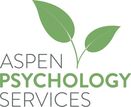Hope ❤️
Introduction.
A belated Happy New Year to anyone reading this. I felt moved to write this blog article following a recent experience I had with a health professional whose work had a significant positive impact on me, both in terms of my physical and psychological wellbeing. There was, of course, the benefit of her technical skill, but this was all wrapped in a person-centred approach that made such a difference to my experience. If you want to know more about what happened, and where it's left me as a result, read on....




 RSS Feed
RSS Feed
